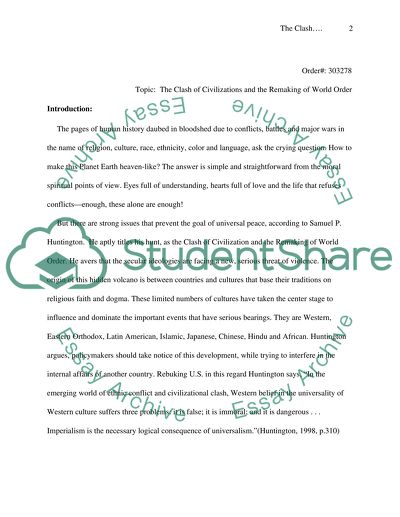Cite this document
(The Clash of Civilizations and the Remaking of World Order Coursework, n.d.)
The Clash of Civilizations and the Remaking of World Order Coursework. https://studentshare.org/history/1555420-the-clash-of-civilizations-and-the-remaking-of-world-order
The Clash of Civilizations and the Remaking of World Order Coursework. https://studentshare.org/history/1555420-the-clash-of-civilizations-and-the-remaking-of-world-order
(The Clash of Civilizations and the Remaking of World Order Coursework)
The Clash of Civilizations and the Remaking of World Order Coursework. https://studentshare.org/history/1555420-the-clash-of-civilizations-and-the-remaking-of-world-order.
The Clash of Civilizations and the Remaking of World Order Coursework. https://studentshare.org/history/1555420-the-clash-of-civilizations-and-the-remaking-of-world-order.
“The Clash of Civilizations and the Remaking of World Order Coursework”. https://studentshare.org/history/1555420-the-clash-of-civilizations-and-the-remaking-of-world-order.


